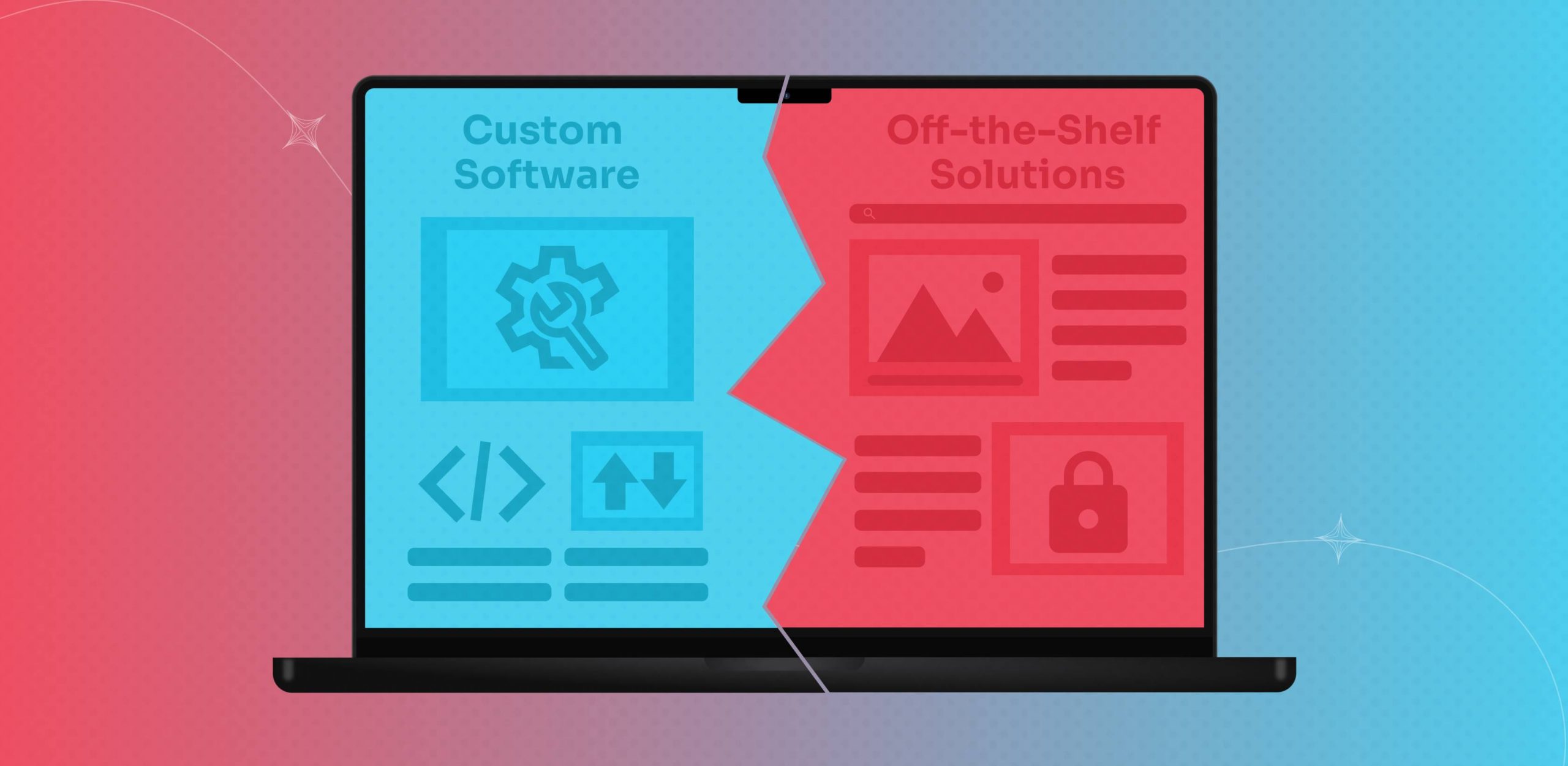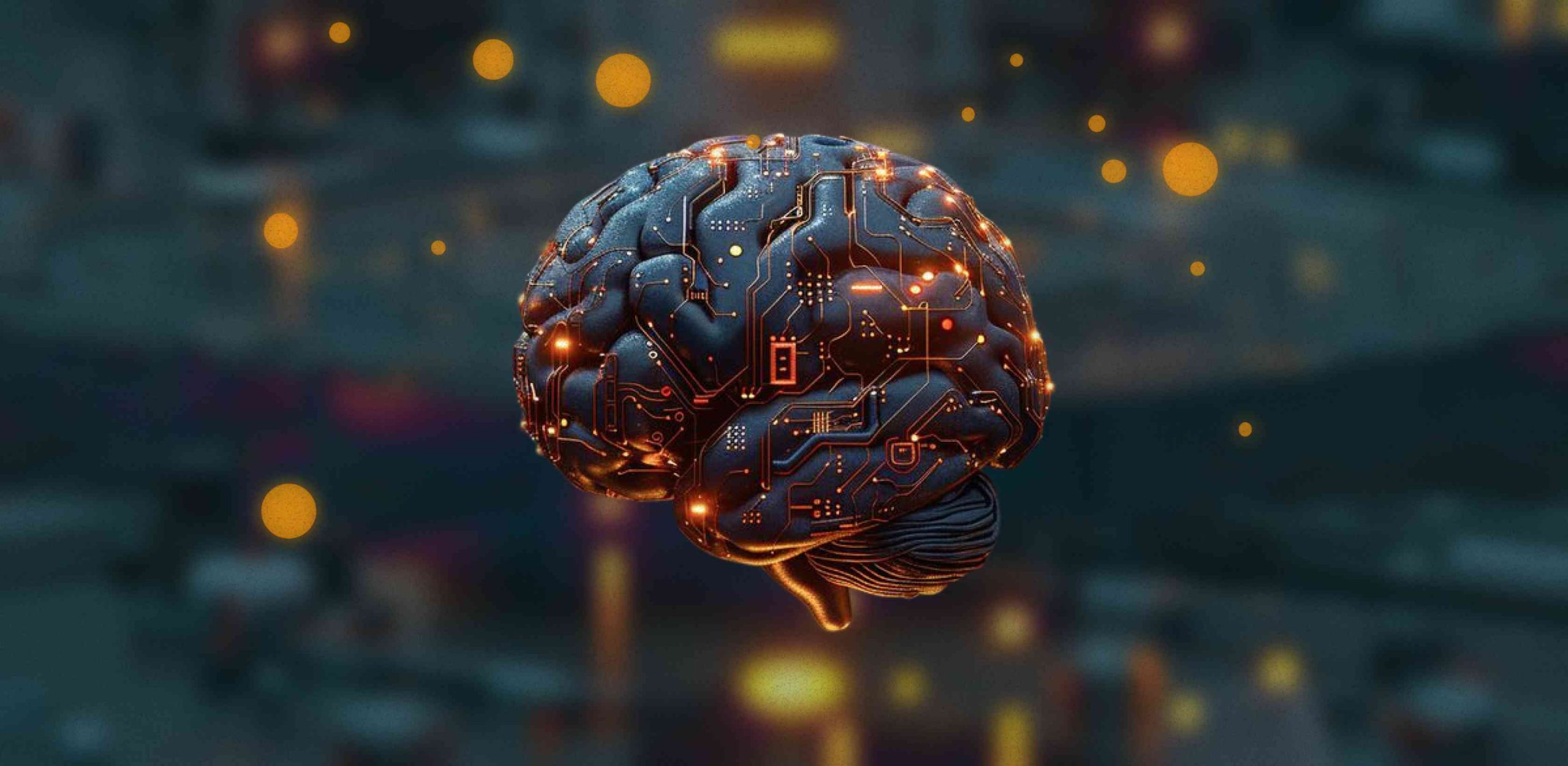AI development is transforming the way businesses leverage data to stay competitive in today’s rapidly evolving landscape. With data often referred to as the “new oil,” companies that can effectively harness and analyze their data have a significant edge. However, merely collecting large volumes of data is not enough—the real challenge lies in processing it, uncovering valuable insights, and making informed decisions in real-time. This is where AI development services become indispensable.
AI development services equip businesses with advanced technologies to maximize the value of their data, turning raw information into strategic insights that fuel growth, optimize operations, and enhance customer experiences. From AI app development to machine learning models, artificial intelligence is revolutionizing decision-making processes across industries. In this blog, we will explore the crucial role AI plays in enabling data-driven decision-making, the benefits of adopting AI-powered solutions, and how businesses can unlock their data’s potential through custom AI development.
What Are AI Development Services?
AI development services encompass a wide range of offerings designed to help businesses leverage the power of artificial intelligence. These services typically involve building custom AI solutions, developing machine learning models, integrating natural language processing (NLP), and using AI-powered automation tools. AI development services are not limited to any particular sector, as they can be tailored to meet the unique needs of industries like healthcare, finance, retail, manufacturing, and more.
Here’s a closer look at the core components of AI development services:
Before embarking on an AI transformation journey, many businesses seek expert advice through AI consulting services. AI consultants provide in-depth assessments of a company’s existing technology stack, data infrastructure, and business objectives, recommending tailored AI solutions that best meet their needs.
AI consulting services typically involve:
Strategic Planning: Consultants help businesses define clear AI goals and create a roadmap for integrating AI into their operations.
Use Case Identification: Consultants identify the areas where AI can have the most significant impact, such as automation, customer service, or data analytics.
Implementation Guidance: Once a strategy is in place, AI consultants guide businesses through the implementation process, ensuring seamless integration with existing systems.
AI consulting helps businesses avoid common pitfalls and ensures they achieve maximum return on investment from their AI initiatives.
Generative AI is one of the most groundbreaking advancements in artificial intelligence. It focuses on creating algorithms that can generate new, original content such as images, text, code, and even music based on existing data. This service allows businesses to develop creative applications that can automate content creation, design prototypes, and simulate complex systems.
For example, generative AI is often used in industries such as gaming, entertainment, and design, where innovation and creativity are critical. In marketing, it can generate personalized ad copy, product descriptions, and visuals, enabling more engaging customer experiences.
With the rise of conversational AI, ChatGPT integration has become a popular AI development service for businesses looking to enhance customer interactions. By integrating models like ChatGPT into their platforms, businesses can deploy intelligent chatbots, virtual assistants, and customer service agents capable of understanding natural language and responding in a human-like manner.
ChatGPT integration offers significant benefits, including:
- 24/7 Customer Support: Businesses can offer continuous customer service without the need for human intervention.
- Personalization: ChatGPT can analyze customer queries and offer personalized recommendations, improving the overall customer experience.
- Operational Efficiency: By automating common customer queries and interactions, businesses can free up resources to focus on more complex tasks.
Large Language Model Development (LLM)
Building on natural language processing (NLP), Large Language Model (LLM) development focuses on creating advanced AI models that can process, understand, and generate human language on a massive scale. These models are trained on vast datasets and can perform a wide array of tasks, from translating languages and summarizing content to answering questions and conducting research.
Businesses across sectors like e-commerce, healthcare, and education are leveraging large language models to:
- Automate content creation, making it faster and more cost-effective.
- Power virtual assistants and chatbots that understand and respond to complex queries.
- Analyze large volumes of unstructured data such as reviews, social media posts, and documents to generate valuable insights.
Enterprise AI development is focused on creating scalable AI solutions that can be seamlessly integrated into large-scale business operations. These services help enterprises automate critical processes, make real-time data-driven decisions, and optimize performance across multiple departments.
Typical applications of enterprise AI include:
- Predictive Maintenance: In industries like manufacturing, AI can predict equipment failures, reducing downtime and maintenance costs.
- Supply Chain Optimization: AI algorithms analyze patterns in demand, helping businesses streamline their supply chain and inventory management.
- Fraud Detection: In finance, enterprise AI development is used to detect fraudulent transactions in real-time, protecting both the business and its customers.
Enterprise AI development ensures that organizations are equipped with customized, robust AI solutions that align with their strategic goals and operational needs.
AI-enabled video analytics is revolutionizing industries such as security, retail, and transportation. By using AI algorithms to analyze video footage in real-time, businesses can gain actionable insights that enhance safety, customer experience, and operational efficiency.
Some of the common applications include:
- Security and Surveillance: AI can analyze video footage to detect suspicious behavior, monitor restricted areas, and trigger alerts in real-time, significantly enhancing security measures.
- Retail Analytics: In retail, AI-enabled video analytics helps store managers understand customer behavior, optimize store layouts, and monitor foot traffic to increase sales.
- Smart Cities: In the transportation sector, AI-powered video analytics can monitor traffic patterns, predict congestion, and even help manage accidents, making cities more efficient and safer.
AI-enabled video analytics empowers businesses with real-time data insights that can improve decision-making, enhance customer safety, and optimize operations.
The Importance of Data-Driven Decision-Making in Modern Business
In today’s fast-paced and highly competitive business landscape, making informed decisions is more important than ever. While the concept of data-driven decision-making has been around for some time, the rise of AI development and machine learning technologies has elevated its importance to a whole new level. Businesses now generate enormous amounts of data from various sources such as customer interactions, market trends, and internal processes. However, without the right tools to process and analyze this data, much of it remains untapped and unused, preventing organizations from fully capitalizing on the insights it holds.
AI development services offer businesses the ability to unlock the full potential of their data, transforming it into actionable intelligence. By leveraging AI technologies, companies can sift through vast amounts of data at a speed and scale that is simply impossible for human analysts to match. This ability to process and interpret data quickly and accurately allows businesses to make decisions that are not only based on solid evidence but are also timely and relevant in an ever-changing market.
Enhanced Agility and Adaptability
In the modern business environment, agility is a key factor for success. The ability to quickly adapt to market changes, customer preferences, and emerging trends is vital for maintaining a competitive edge. Data-driven decision-making enables businesses to be more agile by providing real-time insights that can inform immediate actions.
For instance, companies that rely on AI for real-time data processing can adjust their strategies on the fly. A company might launch a marketing campaign and, within hours, start receiving data on its performance through AI-driven analytics platforms. Based on the real-time feedback, they can make adjustments to their campaign, tweaking their messaging or targeting different customer segments to improve results. This level of agility would be impossible without the help of AI development services that can process and deliver insights in real-time.
By being more agile, businesses can stay ahead of their competitors, respond to customer demands faster, and remain resilient in the face of market disruptions.
Risk Reduction
Every business decision comes with some level of risk, but data-driven decision-making significantly reduces that risk by basing choices on historical data, trends, and predictive analytics. Rather than relying on gut feelings or untested assumptions, businesses can use data to evaluate the potential risks and rewards of different strategies.
AI development allows businesses to analyze past performance, understand why certain strategies worked (or didn’t), and predict the outcomes of similar actions in the future. For example, in the manufacturing industry, companies can use AI to predict equipment failures by analyzing data from machinery sensors. This predictive maintenance approach allows businesses to take preventative measures before a costly breakdown occurs, minimizing downtime and reducing the risk of operational disruptions.
In finance, AI-driven risk assessments can analyze thousands of variables in real-time, helping firms to assess potential risks before making high-stakes investment decisions. By understanding these risks early, companies can make more informed, data-backed choices that help mitigate potential pitfalls.
Gaining a Competitive Advantage
The ability to make smarter, faster decisions is a powerful competitive advantage. Companies that can leverage data effectively often outperform those that cannot. By using AI development services to create custom AI solutions, businesses can quickly analyze trends, forecast future developments, and capitalize on opportunities before their competitors even recognize them.
For example, e-commerce companies that utilize AI-driven recommendation engines can offer personalized shopping experiences based on individual customer behaviors and preferences. This level of personalization leads to increased customer satisfaction and loyalty, which in turn drives sales and revenue growth.
In the logistics industry, AI can optimize supply chain management by predicting demand, adjusting inventory levels, and improving delivery routes in real time. Companies that embrace these capabilities are able to reduce costs, increase efficiency, and deliver superior customer service—giving them a significant edge over their competitors.
Contact us today to explore custom AI solutions tailored to your business needs!
How AI Development Services Unlock Data-Driven Decision-Making?
AI development services provide the backbone for data-driven decision-making by utilizing technologies like machine learning, big data analytics, and natural language processing to process and analyze large datasets. Here are a few ways AI development services can unlock the power of data-driven decision-making:
- Predictive Analytics: One of the most significant applications of AI in decision-making is predictive analytics. By analyzing historical data, AI models can predict future trends, allowing businesses to make proactive decisions. For example, in retail, AI can forecast demand for certain products based on past purchase behaviors and external factors like holidays or weather patterns.
- Real-Time Data Processing: In many industries, such as finance and healthcare, the ability to process data in real-time is crucial for decision-making. AI development services can build systems that monitor data streams continuously, enabling businesses to make decisions on the fly. For example, banks can use real-time data to detect fraudulent transactions before they affect customers.
- Automating Routine Decisions: AI-powered automation can handle repetitive decision-making tasks that would otherwise require human intervention. For instance, an e-commerce site could use AI to automatically adjust pricing based on real-time demand and competitor pricing data, freeing up human resources for more strategic tasks.
- Natural Language Processing (NLP): NLP can help businesses unlock valuable insights from unstructured data sources such as customer feedback, social media posts, or internal reports. By analyzing the sentiment and topics within this data, companies can make more informed decisions about product development, customer service improvements, or marketing strategies.
- Personalization and Customer Insights: AI models can analyze customer behavior and preferences to deliver personalized recommendations and experiences. This helps businesses in making decisions about product offerings, marketing campaigns, and customer service strategies. For example, streaming platforms like Netflix use AI to recommend content based on user preferences, leading to increased user engagement and satisfaction.
Key Benefits of AI Development Services for Decision-Making
The integration of AI development services into business decision-making processes can revolutionize how organizations operate, enabling them to leverage vast amounts of data effectively. By implementing AI-driven solutions, companies can make faster, more accurate decisions that enhance operational efficiency and customer satisfaction. Below are the key benefits that AI development services bring to decision-making:
Faster Decision-Making
One of the most immediate benefits of AI in decision-making is its ability to process and analyze large datasets at unprecedented speeds. Traditional data analysis methods often require human intervention, which can slow down decision-making processes, especially when dealing with vast amounts of unstructured data.
AI development services automate these processes, allowing businesses to make decisions in real-time. For example, in industries like finance or healthcare, where timing is critical, AI can analyze transactional data, patient records, or market trends in milliseconds, providing actionable insights almost instantly. This speed allows companies to respond swiftly to market changes, emerging trends, or operational inefficiencies, giving them a competitive edge.
Increased Accuracy
Human analysis, while valuable, is prone to error—especially when it comes to sifting through massive datasets. AI models, on the other hand, are trained to learn from past data and can identify intricate patterns that may go unnoticed by human analysts. By recognizing trends, anomalies, and correlations in data, AI systems deliver more accurate predictions and recommendations.
For instance, AI-powered predictive analytics tools can forecast demand, identify supply chain inefficiencies, or predict equipment failures based on historical data. By reducing human error and offering precision in analysis, businesses can make more informed and reliable decisions. This increased accuracy not only helps improve operational efficiency but also minimizes the risks associated with poor decision-making.
Scalability
As businesses grow, so does the volume of data they generate. Traditional decision-making processes may struggle to keep up with the ever-increasing data load, especially when businesses expand into new markets, launch new products, or serve larger customer bases. AI-driven decision-making systems are inherently scalable, meaning they can seamlessly adapt to handle growing data sets without compromising performance.
AI development services ensure that as your business data grows, the AI systems you rely on can scale to meet demand. Whether you are dealing with customer data, financial records, or operational metrics, AI can quickly analyze and provide insights regardless of the volume. This scalability is particularly beneficial for industries such as retail, finance, and e-commerce, where rapid data growth is common and swift, accurate decision-making is essential for success.
Cost Efficiency
Another significant advantage of integrating AI development services into decision-making processes is the potential for cost savings. Traditionally, businesses would require large teams of data scientists and analysts to sift through and interpret vast amounts of data. This not only takes time but also requires substantial financial resources to maintain such teams.
AI automates much of the data processing and decision-making workflows, significantly reducing the need for large analysis teams. The reduced dependency on human resources translates into lower labor costs while still enabling companies to derive actionable insights from their data. Additionally, AI systems can work continuously without fatigue, further enhancing efficiency and minimizing operational costs. In industries like manufacturing, AI-driven automation can also help optimize production processes and reduce wastage, leading to further cost savings.
Enhanced Customer Experiences
In today’s highly competitive market, delivering personalized and engaging customer experiences is critical to retaining customer loyalty. AI development services can help businesses analyze customer behavior, preferences, and feedback in real-time, enabling them to tailor their products, services, and marketing efforts to meet individual customer needs.
For example, AI app development in the retail sector allows companies to personalize product recommendations based on customers’ browsing and purchase history. In the financial industry, AI can analyze customer data to offer personalized financial advice or banking services. AI-powered chatbots, driven by natural language processing (NLP), also enhance customer service by offering instant, accurate responses to customer inquiries, improving satisfaction levels.
Industries Leveraging AI for Better Decision-Making
The integration of AI development services has brought significant transformations across numerous industries, enhancing decision-making processes by unlocking the potential of data-driven insights. Organizations across sectors are harnessing artificial intelligence to process large volumes of data, derive actionable insights, and optimize various operations. Here’s how different industries are benefiting from AI-driven decision-making:
In healthcare, AI is playing a pivotal role in improving patient outcomes, enhancing operational efficiency, and reducing costs. From medical imaging to drug discovery and patient data analysis, AI development services are transforming how healthcare professionals make critical decisions.
- Medical Imaging: AI-powered tools analyze medical images such as X-rays, MRIs, and CT scans to detect anomalies that might be missed by the human eye. This improves the accuracy of diagnoses and enables early detection of conditions like cancer and cardiovascular diseases.
- Drug Discovery: AI is speeding up the drug discovery process by analyzing massive datasets to identify potential compounds that could be effective in treating specific diseases. AI models simulate how different compounds will interact with biological targets, helping researchers make informed decisions on which compounds to develop further.
- Patient Data Analysis: AI systems analyze vast amounts of patient data from electronic health records (EHRs) to identify patterns and trends that can inform treatment decisions. For instance, AI can predict patient outcomes based on historical data, enabling doctors to tailor treatment plans to individual patients’ needs.
By improving the precision of diagnostics and predicting patient responses, AI helps healthcare providers make more informed and timely decisions, ultimately improving patient care.
The financial sector has been one of the earliest adopters of AI technologies, with AI development services significantly improving the way banks and financial institutions manage risk, detect fraud, and provide personalized services.
- Risk Management: Financial institutions use AI models to analyze vast amounts of market data and predict potential risks, helping them make better investment decisions and minimize losses. AI can assess risk in real-time, allowing financial firms to adapt to market changes quickly.
- Fraud Detection: AI-powered systems monitor financial transactions in real-time to identify suspicious activities and anomalies that could indicate fraud. Machine learning algorithms continuously learn from new fraud patterns, making the systems more accurate and efficient over time. This helps banks and payment platforms reduce fraud-related losses and protect their customers.
- Personalized Financial Services: AI analyzes customer data to offer personalized financial services such as loan approvals, investment advice, and spending insights. By understanding individual financial behaviors, AI-driven insights allow institutions to tailor products and services to meet the specific needs of their customers.
In finance, AI development services enable companies to make faster, more accurate decisions, reducing risks and enhancing the customer experience.
In the retail industry, AI is revolutionizing everything from supply chain management to customer engagement. AI development services help retailers optimize their operations and deliver more personalized shopping experiences.
- Supply Chain Optimization: AI can predict demand for products by analyzing historical sales data, market trends, and external factors like weather conditions or seasonal changes. This helps retailers manage inventory levels more efficiently, ensuring that they stock the right products at the right time, and reducing overstocking or stockouts.
- Personalized Recommendations: By analyzing customer behavior and preferences, AI-powered recommendation engines can offer personalized product suggestions. For example, Amazon’s AI algorithms analyze past purchases and browsing history to recommend products tailored to individual customer preferences, boosting sales and improving customer satisfaction.
- Marketing and Pricing: AI helps retailers optimize pricing strategies by analyzing competitor pricing, customer demand, and historical data. AI tools can adjust prices dynamically to maximize revenue and ensure competitiveness. In marketing, AI-driven insights guide campaigns by identifying which products customers are most likely to buy and the best channels to reach them.
Retailers who leverage AI development services can make more informed decisions about inventory, marketing, and customer engagement, leading to improved profitability and customer loyalty.
AI Development for Manufacturing
AI is transforming the manufacturing sector by improving predictive maintenance, optimizing production processes, and enhancing overall efficiency. AI development services provide manufacturers with the tools to streamline operations and reduce downtime.
- Predictive Maintenance: AI models analyze machine data to predict when equipment is likely to fail, allowing manufacturers to perform maintenance before a breakdown occurs. This reduces costly downtime and extends the lifespan of machinery. Predictive maintenance ensures that machines are operating at optimal efficiency, minimizing disruptions in production.
- Production Process Optimization: AI-driven analytics monitor production processes in real-time, identifying bottlenecks and inefficiencies that can be addressed immediately. AI systems can automatically adjust production schedules and resource allocation to ensure that operations run smoothly.
- Quality Control: AI-powered computer vision systems are used to inspect products for defects during the manufacturing process. These systems can analyze images and data far more quickly and accurately than human inspectors, ensuring consistent product quality and reducing waste.
By adopting AI development services, manufacturers can optimize their production processes, reduce costs, and improve product quality, making their operations more competitive in the global market.
The e-commerce industry is leveraging AI development services to enhance customer experiences and optimize business operations. From personalized recommendations to dynamic pricing, AI is a key driver of growth and innovation in the online retail space.
- Personalized Shopping Experiences: E-commerce platforms like Amazon and Alibaba use AI algorithms to analyze customer data and provide personalized shopping experiences. AI systems track user behavior, including browsing history and past purchases, to recommend products that are most likely to appeal to each individual customer. This boosts engagement and increases conversion rates.
- Inventory Management: AI tools help e-commerce companies manage their inventory more effectively by predicting demand and optimizing stock levels. By analyzing historical sales data and external factors, AI can forecast when products are likely to run out of stock and adjust supply chain operations accordingly.
- Dynamic Pricing: AI-powered pricing algorithms allow e-commerce platforms to adjust prices in real-time based on market demand, competitor pricing, and customer behavior. This enables businesses to maximize profits while remaining competitive in the marketplace.
In e-commerce, AI development services enable companies to make data-driven decisions that improve customer satisfaction and boost sales, all while optimizing backend operations.
Choosing the Right AI Development Partner
Implementing AI solutions within your business is a significant investment in technology and strategy, one that has the potential to transform operations and unlock new opportunities. However, the success of your AI initiatives heavily depends on choosing the right AI development company. A strong partnership will ensure that the AI solutions align with your unique business goals, deliver long-term value, and are built on a foundation of the latest, most effective technologies. Here are the key factors to consider when selecting your AI development partner:
Expertise and Experience
The first and perhaps most crucial factor when selecting an AI development partner is their expertise and experience. AI development is a specialized field that requires deep knowledge of various technologies like machine learning (ML), natural language processing (NLP), computer vision, big data analytics, and more. It is important to ensure that the partner you choose has substantial experience in your specific industry and has a solid understanding of the unique challenges and opportunities within that field.
Look for an AI development company with a track record of successful projects. Case studies, testimonials, and portfolios that showcase the partner’s ability to deliver effective, AI-driven solutions across different domains are valuable indicators of expertise. Additionally, inquire about the company’s expertise in specific AI subfields such as deep learning, automation, or predictive analytics, depending on your project’s needs. Partnering with an experienced team reduces risks and ensures that your AI solutions are developed with best practices in mind.
Customization
Every business is unique, and so are its AI needs. A great AI development partner should not offer cookie-cutter solutions; instead, they should work closely with you to create tailored solutions that address your specific challenges and business objectives.
During the evaluation process, focus on how willing the company is to customize its AI services. Do they offer tailored AI app development solutions that fit your business model? Are they open to learning about your specific goals and crafting solutions accordingly? The ability to develop custom AI solutions that align with your company’s vision is critical. For instance, an e-commerce company might need personalized product recommendations, while a healthcare provider may need predictive analytics to improve patient outcomes.
Your chosen AI development partner should also have experience in adapting their offerings to fit your industry’s regulatory requirements, compliance standards, and other specific business constraints. A tailored approach ensures that the AI solutions provide real value to your operations rather than a generic, off-the-shelf product that might not meet all your needs.
Technology Stack
The technology stack of your AI development partner plays a pivotal role in the success of your AI initiative. A robust and scalable technology infrastructure ensures that your AI solutions are future-proof, easy to integrate, and capable of growing alongside your business.
When evaluating potential AI partners, inquire about their tech stack, including the AI frameworks, programming languages, libraries, and tools they use. Key AI frameworks like TensorFlow, PyTorch, or Keras are essential for developing cutting-edge machine learning models. Likewise, ask about their experience with data management platforms, cloud services (such as AWS, Azure, or Google Cloud), and big data technologies like Apache, Hadoop or Spark.
Ensure that their technology stack aligns with your current systems and is capable of seamless integration into your existing workflows. Scalability is another important consideration—your AI solutions should be able to grow and handle increasing data volumes and complexity as your business expands. A partner with a strong technical foundation can ensure that your AI projects succeed not just in the short term, but in the long run as well.
Collaboration and Support
AI projects are highly collaborative, requiring close communication and teamwork between your internal team and the AI development partner. Thus, selecting a partner with a strong focus on collaboration is key to the smooth execution of your AI initiatives.
You’ll want to work with a development company that understands your vision, listens to your input, and keeps you involved throughout the development process. Clear and open communication ensures that both parties remain aligned on project goals, timelines, and deliverables. Choose a partner that offers regular updates and feedback loops during the development cycle, enabling you to make informed decisions as the project progresses.
Additionally, the support provided by the AI development partner post-deployment is crucial. AI systems require ongoing monitoring, tweaking, and maintenance to remain effective. Ensure the partner offers reliable, long-term support that includes updates, performance optimization, and troubleshooting. This is particularly important as AI models and algorithms might need refinement or retraining as new data is fed into the system. Select a partner willing to adapt to evolving business needs and continuously fine-tune the solution for optimal performance.
Cost vs. Value
While cost is an important consideration when choosing an AI development partner, it should not be the sole deciding factor. AI development can be a complex and resource-intensive process, and focusing solely on the cheapest option may lead to subpar results that fail to deliver long-term value.
Instead, think about the value the AI solution can bring to your business. An experienced AI partner may come at a higher initial cost, but the ROI in terms of improved decision-making, operational efficiency, cost reduction, and enhanced customer experiences could far outweigh the upfront expense. Consider the potential for long-term gains, such as scalability, the automation of repetitive tasks, or data-driven insights that can provide your business with a competitive edge.
Also, weigh the long-term maintenance and support costs, along with the ability of the AI development company to future-proof the solutions they create. A high-quality AI system will have a longer lifecycle and require fewer costly adjustments down the line, ensuring that your initial investment delivers ongoing value.
Conclusion
Artificial intelligence is no longer a futuristic concept—it’s a powerful tool that is reshaping how businesses make decisions today. AI development services provide organizations with the ability to process large volumes of data, uncover hidden insights, and make faster, more accurate decisions. From improving operational efficiency to enhancing customer experiences, AI has the potential to revolutionize every aspect of your business.
If you’re ready to unlock the full potential of data-driven decision-making with AI, now is the time to take action. Whether you’re looking to implement AI-powered solutions or develop a custom AI application tailored to your specific needs, partnering with an experienced AI development company can make all the difference.
Contact us today to learn how we can help you develop and implement AI solutions that drive real business results. From AI app development to comprehensive AI-powered automation, our team of experts is ready to guide you through every step of your AI journey. Let us help you harness the power of Artificial Intelligence to transform your business and stay ahead in a competitive market.
Let’s transform your business for a change that matters.
F. A. Q.
Do you have additional questions?
What are AI development services?
AI development services involve creating custom solutions that leverage artificial intelligence technologies such as machine learning, natural language processing, and big data analytics. These services enable businesses to develop AI-powered applications, automate processes, and make data-driven decisions to improve efficiency and drive growth.
How do AI development services help with data-driven decision-making?
AI development services help businesses process and analyze large datasets efficiently, uncover hidden insights, and predict future trends. By leveraging AI technologies like machine learning and predictive analytics, businesses can make faster, more informed decisions based on real-time data rather than relying on intuition or historical trends alone.
What are the benefits of using AI development services for my business?
AI development services offer several key benefits, including faster decision-making, improved accuracy, automation of repetitive tasks, scalability of operations, cost efficiency, and enhanced customer experiences. These services also help businesses unlock deeper insights from their data, which can lead to better overall business outcomes.
What industries benefit the most from AI development services?
AI development services can benefit a wide range of industries, including healthcare, finance, retail, manufacturing, and e-commerce. Each industry can leverage AI in unique ways, such as improving diagnostics and patient care in healthcare, enhancing fraud detection in finance, optimizing supply chains in retail, and streamlining operations in manufacturing.
What factors should I consider when choosing an AI development company?
When selecting an AI development partner, consider factors such as their expertise and experience in your industry, their ability to customize solutions to your needs, their technology stack, their approach to collaboration and ongoing support, and the overall value they offer relative to cost.
How long does it take to develop an AI solution?
The timeline for developing an AI solution varies depending on the complexity of the project, the scope of the solution, and the specific requirements of the business. Small AI projects like chatbots may take a few weeks to develop, while more complex systems like predictive analytics models or full-scale automation solutions may take several months.
How much does AI development cost?
The cost of AI development services can vary widely based on the size and scope of the project, the complexity of the AI models involved, and the specific needs of the business. It’s important to assess the long-term value and ROI of the solution rather than focusing solely on the upfront costs.
Can AI development services be customized to meet my specific business needs?
Yes, AI development services are highly customizable. A good AI development company will work closely with you to understand your unique business challenges and create tailored solutions that align with your goals. Custom AI solutions ensure that your specific requirements are addressed, delivering maximum value to your organization.
What role does AI play in automating decision-making processes?
AI plays a significant role in automating routine decision-making processes by using machine learning algorithms to analyze data, predict outcomes, and recommend actions. For example, AI can automate pricing decisions in e-commerce based on demand patterns or trigger maintenance alerts in manufacturing when machinery shows signs of potential failure.
How do I maintain and update my AI solutions after deployment?
AI solutions require ongoing maintenance and monitoring to ensure they continue to perform optimally. This includes retraining machine learning models with new data, updating algorithms, optimizing performance, and addressing any technical issues that arise. Many AI development companies offer long-term support and updates to ensure your AI solution evolves with your business needs.















